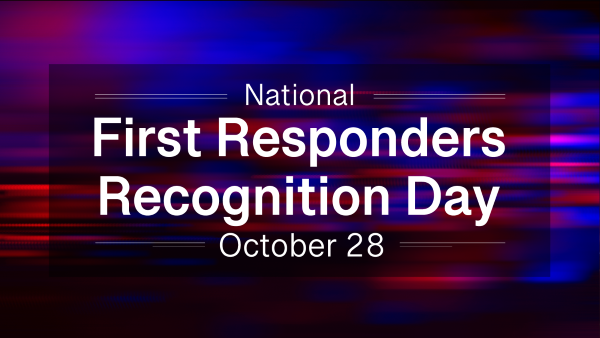
|
|||
|
In this Update:
Blue Lights Law Heads to Governor’s DeskLegislation legalizing rear-facing blue lights for tow-truck operators will soon head to the governor’s desk, Sen. Doug Mastriano (R-33) said today. “This bill could cut down on roadside accidents and save lives,” Mastriano said. “Multiple studies show blue lights attract more attention and are far more visible in hazardous weather conditions. We can’t let something as simple as failing to use brighter lights lead to more deaths.” Mastriano sponsored Senate Bill 1123 earlier this year after a tow truck driver in his district said other states with blue lights laws reported fewer accidents. Under current law, tow truck operators can only use flashing orange or yellow lights. Studies from the Texas Department of Transportation and the University of Michigan demonstrate that drivers routinely ignore the sight of these lights on the road, often resulting in fatal accidents. “The flashing blue lights will no doubt give drivers more time to react, protecting both tow truck operators and the people in waiting in disabled vehicles on the side of the road,” Mastriano said. “It’s a simple fix and we shouldn’t delay action on it any longer.” The legislation now awaits the governor’s signature. Overdose Mapping Act Heads to GovernorThe Overdose Mapping Act will soon head to the governor’s desk after unanimous concurrence in the Senate today, Sen. Doug Mastriano (R-33) said. “Enhanced real-time tracking of spikes in overdose reports is a critical tool we can use to fight our ongoing opioid epidemic,” Mastriano said. “This bill catches us up to other states that have implemented similar technology to recognize alarming patterns in real time and save lives.” Senate Bill 1152, introduced by Mastriano earlier this year, requires first responders – including law enforcement and emergency medical services – to report overdoses into an electronic statewide system that will be developed and maintained in consultation with the Department of Health. Standardizing use of a statewide system will help local officials identify emerging trends, mobilize an emergency response and alert law enforcement and EMS to the existence of fentanyl-laced drugs in a particular region. In 2021 alone, the CDC said more than 100,000 people died nationwide from fentanyl and opioid overdoses, a 15% increase over the year before. Pennsylvania ranks third nationwide for overdose fatalities. “Drastic times call for drastic measures,” Mastriano said. “We can’t put out fires that we can’t see and consistently using a mapping tool like this will give our first responders the visibility they need to act quickly, save lives and make communities safer.” SB 1152 passed the House of Representatives earlier Wednesday. It now awaits the governor’s signature. Senate Approves Measures to Support Police and Crime Victims
Taking further action to stem the rise in violent crime in Pennsylvania, the Senate this week passed measures to support law enforcement and crime victims. House Bill 103 seeks to better protect our law enforcement officers against harassment by strengthening penalties against criminals who intentionally spit on or throw bodily fluids at officers. House Bill 1546 further protects law enforcement officers by prohibiting the release of a public safety official’s home address or telephone number. While criminal prosecutions punish offenders, restitution for crime victims often falls short. When that happens, victims often turn to the civil justice system. The Senate passed House Bill 2525 to make it easier for crime victims to obtain relevant information learned by law enforcement during the investigation of the crime. Crime victims can then use that information in civil legal actions to recover damages for their injuries. In addition, the Senate approved House Bill 140 to help fight rampant crime in Philadelphia. It requires the appointment of a special prosecutor to investigate and prosecute crimes committed within its mass transit system. These efforts build on the work that has been accomplished over the past two years to protect crime victims, prevent human trafficking and strengthen penalties for criminals who seek to elude officers. Senate Acts to Add Sex Traffickers to Sex Offender Registry
A measure requiring offenders convicted of a sex trafficking-related crime to register as sex offenders received final legislative approval this week. Senate Bill 118 adds these crimes to the reporting requirements of Pennsylvania’s Megan’s Law. The law requires the State Police to maintain a public, online registry of persons who reside, work or attend school in the Commonwealth and who have been convicted of or pleaded guilty to certain sexual offenses in Pennsylvania or another jurisdiction. Most defendants in the FBI’s human trafficking cases had prior criminal records and are prone to recidivism. The Megan’s Law Registry has proven to be a deterrent to subsequent sexual offenses committed by those who are on it. The bill was sent to the governor for enactment. Measure to Improve Notification of Government Data Breaches Sent to Governor
Legislation requiring that state agencies, their contractors and local governments provide timely notification to victims of a data breach received final approval. Breaches involving personally identifiable information must be reported within seven days of such a breach being determined, under Senate Bill 696. In addition to timely notification, the measure requires the state Attorney General to be notified of a state-level breach and county district attorneys to be notified of county, municipal and school district breaches. The bill was sent to the governor for enactment. Health Care Reform Measure Receives Final Approval
The Senate gave final approval of a measure that would standardize and streamline the process of prior authorization and step therapy for medical services. Prior authorization is the process in which health care providers obtain advance approval for purposes of payment coverage and reimbursement from an insurer before a specific procedure or service is delivered to the patient. Step therapy allows insurers to recommend different drug treatment option(s) to patients to address costs. A recent survey of physicians found that 91% of doctors said prior authorization delays can lead to negative clinical impacts on patients, and 78% of doctors said that prior authorization delays can lead to their patients abandoning treatment plans. Senate Bill 225 would create standards and timely feedback for commercial health insurance plans, as well as Medicaid plans, when health care providers seek prior authorization approval from insurers. The bill also reforms step therapy protocols. The bill was sent to the governor to be signed into law. Mail-In Ballot Application Deadline is Nov. 1
Tuesday, Nov. 1, is the deadline to apply for mail and absentee ballots for the Nov. 8 General Election. Applications can be requested online or you can download the form and return it to your County Voter Registration Office no later than 5 p.m. on Nov. 1. Instructions for preparing and returning your ballot can be found here. Ballots must be received by 8 p.m. on Election Day. Recognizing the Contributions of First Responders
We sometimes take for granted the sacrifice and dedication of first responders, without whom our communities could not safely function. Thank you, police officers, firefighters, emergency medical personnel and everyone else who answers the call, anytime, day or night. Time for Trick or Treaters
Communities will be holding Halloween nights between now and Oct. 31. In addition to stocking up on candy, please keep an eye out for distracted children crossing streets and scurrying about. |
|||
|
|||




Want to change how you receive these emails? 2026 © Senate of Pennsylvania | https://senatormastriano.com | Privacy Policy |






